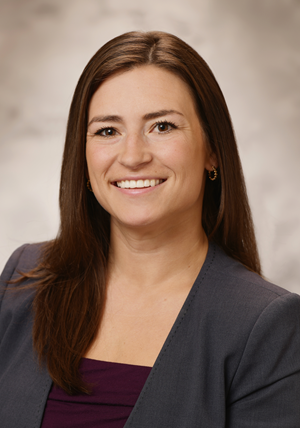Breast Cancer Awareness Month: Empowering Your Health Journey
October 18, 2024
Categories: Cancer, Women's Health
As we celebrate Breast Cancer Awareness Month in October, it’s important to focus on education, early detection, and the myriad of treatment options available. Breast cancer remains one of the most common cancers among women, and while the statistics can be daunting, awareness and timely action can lead to successful outcomes.
Screening and Early Detection
Mammograms are the cornerstone of detecting breast cancer and can show cancer before symptoms are even present. The American Cancer Society recommends women begin yearly mammograms at age 40, or earlier if there is a family history or other risk factors. Clinical breast exams and self-exams can also be beneficial.
Signs and Symptoms
Understanding the signs and symptoms of breast cancer is the first step in being able to catch it sooner rather than later. While not every sign and symptom signify cancer, being on top of things as much as possible can save lives. Common signs include:
- A Breast Lump/Mass: The most common symptom, often painless, is a lump in or near the breast. It's crucial to get any new lump evaluated immediately upon detection.
- Changes in Size or Shape: Don’t overlook any noticeable changes in the breast, including swelling or asymmetry. If something seems off, consult with your doctor right away.
- Skin Changes: Dimpling, puckering, or a rash on the breast or nipple can also indicate underlying issues.
- Nipple Discharge: Medical attention should be sought immediately if there is any unusual discharge, especially if it’s bloody or occurs without squeezing.
- Nipple Changes: Inversion or other alterations in the nipple’s appearance may also be a cause for concern.
Again, if you have one or more of these symptoms, consult your healthcare provider as soon as you can. Early diagnosis can significantly increase the odds of successfully treating it.
Risk Factors
While breast cancer can affect anyone, certain factors can increase risk. Some of them include the following:
- Genetics: A family history of breast cancer or mutations in genes.
- Age: Risk increases with age, especially after age 55.
- Hormonal Factors: Early menstruation, late menopause, or hormone replacement therapy.
- Lifestyle Factors: Obesity, sedentary lifestyle, alcohol consumption, and smoking have been linked to a higher risk of developing breast cancer.
Being aware of these risk factors can empower you to take preventive measures, such as changes in your lifestyle and scheduling screenings on a regular basis.
Treatment Options
If you are diagnosed with breast cancer, the next step would be to pick the best treatment option(s) for you. Treatment plans are personalized by Trinity Health physicians based on the type and stage of cancer, as well as individual health considerations. Common treatments include:
- Surgery: Options may include lumpectomy (removal of the tumor) or mastectomy (removal of one or both breasts). Surgery aims to remove the cancer entirely. Even if the cancer is removed entirely, other treatments can be used to decrease the risk of recurrence and spreading, which can include the following:
- Radiation Therapy: This treatment uses high-energy waves to target and kill cancer cells, typically following surgery to eliminate any remaining cells.
- Chemotherapy: Often recommended for more aggressive cancers or those that have spread, chemotherapy uses drugs to kill rapidly dividing cells, including cancer cells.
- Hormone Therapy: For hormone-receptor-positive cancers, this treatment blocks the body’s natural hormones that can fuel cancer growth.
- Targeted Therapy: Newer treatments focus on specific characteristics of cancer cells, leading to more effective and less invasive options.
Moving Forward
While being told you have breast cancer is overwhelming and a significant life event, it’s important to remember that early detection and treatment have greatly improved outcomes. This October, let’s prioritize awareness, support one another, and encourage discussions about breast health. Be sure to share your knowledge and advocate for the women in your life to be screened regularly.
And if you are currently battling breast cancer, you shouldn’t face this journey alone. Reach out to support groups, connect with survivors, and communicate openly with your healthcare team. At Trinity Health, we aim to make a difference in the fight against breast cancer by transforming awareness into action.
Marisa O'Neill, DO, is a breast surgical oncologist with Trinity Health IHA Medical Group. To schedule an appointment with Dr. O’Neill, please call 734-712-1700.




